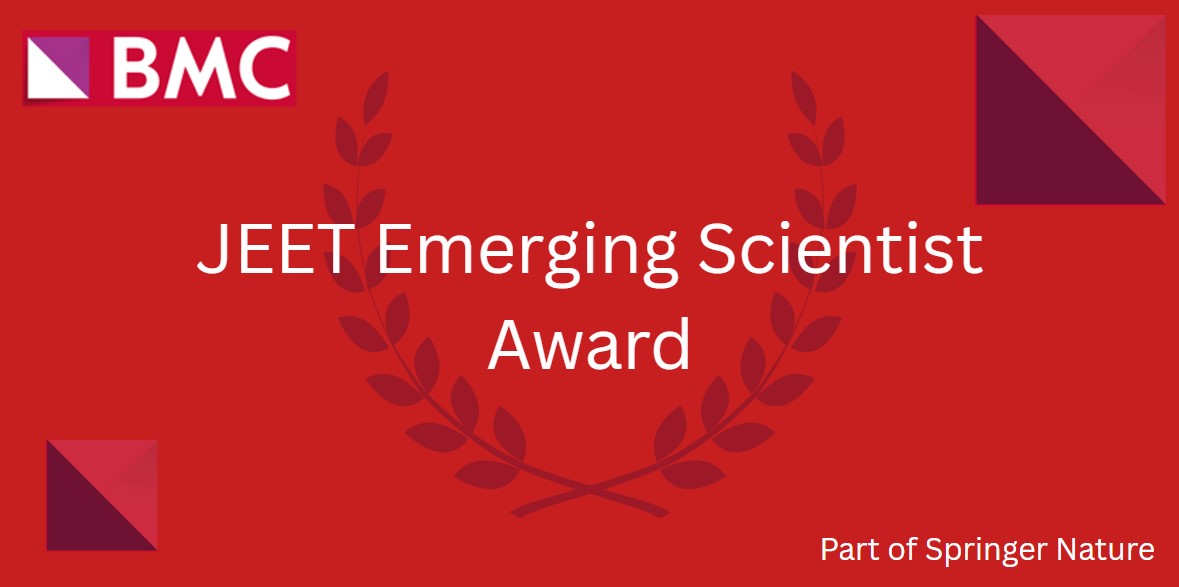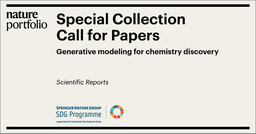Calling for nominations for the new JEET Emerging Scientist Award in Ethnobiology
Published in Social Sciences, Ecology & Evolution, and Microbiology

As part of the 20th anniversary celebrations for the Journal of Ethnobiology and Ethnomedicine (JEET), the journal Editor-in-Chief, BMC, and the Board Members have decided it was time to launch a new initiative aimed to reward and foster excellence in the field. Starting from 2025, the JEET Emerging Scientist Award in Ethnobiology will be awarded annually to three colleagues who have made outstanding contributions to the field of Ethnobiology and Ethnosciences and are in the early stages of their career.
Ethnobiological sciences explore the inextricable links between human societies and nature, food, and health. The relationship between humans and nature is a topic that is as ancient as human civilisation itself, and it has come back to the attention of the global scientific community as ethnobiology over the past decades. Ethnobiology brings together so many crucial topics nowadays, including sustainability, the ecological transition, biodiversity and conservation, indigenous knowledge, public health and environmental protection. Advances have been made in all the relevant fields in this subject, such as ethnobotany, ethnomycology, ethnozoology, ethnoecology (including ethnopedology), ethnogastronomy, ethnomedicine, ethnoveterinary, as well as all related areas in environmental, nutritional, and medical anthropology.

The JEET Emerging Scientist Award in Ethnobiology is a unique prize and it aims to reward and celebrate particularly scholars who have worked together with local communities and Indigenous Peoples to foster their wellbeing, create inclusion, and mitigate marginalization and stigmatization.
Nominations are open from 1 May to 31 May 2025. Prize criteria, including the process for nomination, eligibility and selection, and the Prize Committee, can be found on the prize page.
The winners will receive:
- A cash prize of 1,000 EUR for the most outstanding
- 2 cash prizes of 500 EUR for 2 runner-ups
The cash prize is provided by Springer Nature.
The Award recognizes exceptional scientific efforts in documenting, culturally analysing, and interpreting local communities' nature knowledge and folk medical practices heritage, especially those of neglected groups. By awarding and encouraging high quality research in this field, the Prize Committee, the JEET and BMC hope that more can be done to revitalize local ecological and medical knowledge systems and turn it into concrete future projects.
Follow the Topic
-
Journal of Ethnobiology and Ethnomedicine

This journal publishes original research focusing on cultural perceptions of nature and of human and animal health. It invites research articles, reviews and commentaries concerning the investigations of the inextricable links between human societies and nature, food, and health.
What are SDG Topics?
An introduction to Sustainable Development Goals (SDGs) Topics and their role in highlighting sustainable development research.
Continue reading announcementRelated Collections
With Collections, you can get published faster and increase your visibility.
Ethnobiology of the islands
This Collection examines the socio-ecological systems of "islands" and coastal areas worldwide, focusing on the relationship between humans and biota and even non-biotic components and the implications of these interactions over time and space. Cross-cultural analysis, indigenous perspectives, and the complex dynamics between the local knowledge of these "isles" (especially the most peripheral and marginalized ones) and the contiguous mainland are particularly welcome. Issues related to the effects of unsustainable tourism on local knowledge systems are also very appropriate.
The projection of the contributions should aim to foster the community-centered sustainable management of marine and coastal resources and envision new paths in environmental education and political ecology.
This Collection supports and amplifies research related to SDG 14, Life Below Water and SDG 15, Life on Land.
All submissions in this collection undergo the journal’s standard peer review process. Similarly, all manuscripts authored by a Guest Editor(s) will be handled by the Editor-in-Chief. As an open access publication, this journal levies an article processing fee (details here). We recognize that many key stakeholders may not have access to such resources and are committed to supporting participation in this issue wherever resources are a barrier. For more information about what support may be available, please visit OA funding and support, or email OAfundingpolicy@springernature.com or the Editor-in-Chief.
Publishing Model: Open Access
Deadline: Jul 03, 2026
Small-scale farming and ethnobiology – Bridging local knowledge, biodiversity, and cultural landscapes
The importance of deepening our understanding of small-scale farming and its intersections with ethnobiology and ethnoecology cannot be overstated. These fields illuminate not only traditional agricultural practices that have sustained communities for generations, but also contemporary locally adapted sustainable practices. Together, they underscore the vital role of local knowledge in preserving biodiversity and shaping cultural landscapes.
Recent research has highlighted the intricate relationships between local communities and their territories and ecosystems, showing how both traditional and locally adapted innovative farming methods can enhance biodiversity and promote ecological balance. These insights are essential for informing sustainable land management and ecosystem resilience.
Looking ahead, continued exploration in this area holds the potential to yield transformative insights. Integrating traditional knowledge with organic and agroecological practices—which may be ancient, innovative, or retro-innovative—can lead to more sustainable and resilient food and agriculture systems. This research is not only key to preserving cultural heritage but also to addressing urgent global challenges related to food security and environmental sustainability.
Topics of interest include, but are not limited to:
Local Knowledge & Sustainability
• Local Knowledge Systems in Agriculture
• Traditional Agricultural Practices and Sustainability
• Indigenous Knowledge and Climate Resilience
Biodiversity & Conservation
• Biodiversity Conservation in Small-Scale Farming
• Ethnobiological Approaches to Conservation
• Ethnoecological Perspectives on Land Use
Agroecology, Organic Farming & Cultural Landscapes
• Agroecological & Organic Practices and Transitions
• Innovation and Local Knowledge in Agroecological and Organic Systems
• Cultural Landscapes and Food Sovereignty.
This Collection supports and amplifies research related to SDG 2, Zero hunger, SDG 12, Responsible consumption and production, and SDG 15, Life on land.
All submissions in this collection undergo the journal’s standard peer review process. Similarly, all manuscripts authored by a Guest Editor(s) will be handled by the Editor-in-Chief. As an open access publication, this journal levies an article processing fee (details here). We recognize that many key stakeholders may not have access to such resources and are committed to supporting participation in this issue wherever resources are a barrier. For more information about what support may be available, please visit OA funding and support, or email OAfundingpolicy@springernature.com or the Editor-in-Chief.
Publishing Model: Open Access
Deadline: Jun 22, 2026







Please sign in or register for FREE
If you are a registered user on Research Communities by Springer Nature, please sign in
To the JEET Award Selection Committee,
I am honored to nominate Ashebir Awoke, a dedicated and innovative early-career researcher, for the JEET Emerging Scientist Award in Ethnobiology. Ashebir Awoke has demonstrated exceptional promise through pioneering research that bridges traditional ecological knowledge and scientific inquiry, particularly in the areas of ethnobotany or indigenous plant use. Their work not only advances academic understanding but also uplifts indigenous voices and promotes conservation practices deeply rooted in local cultures. With a strong publication record, active fieldwork, and community-based collaboration, he exemplify the values that this award seeks to honor.
Ashebir Awoke completed his terminal degree in 4 year and has since been involved in a range of interdisciplinary projects, contributing significantly to both scientific literature and grassroots development. He have been invited to present research at national and international forums and have mentored students in both formal academic settings and field-based community workshops. I am confident that Ashebir Awoke contributions will continue to shape the future of ethnobiology, and I strongly recommend him for this prestigious recognition. Please find the required nomination materials attached for your consideration.